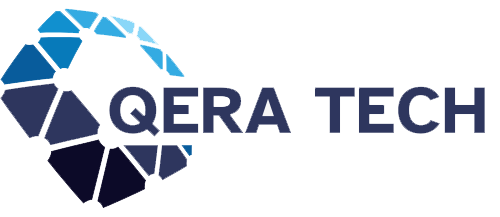Imagine paying into an insurance policy for years—trusting that when the time comes, your family will be protected or your business will recover quickly after a loss—only to find out that the money isn’t coming. Not now, maybe not ever. That’s exactly the situation thousands of policyholders in Bangladesh are facing, as the country’s insurance sector struggles with a massive backlog of unsettled claims.
According to unaudited data from the Insurance Development and Regulatory Authority (IDRA), by June 2025, insurers had received claims totaling Tk9,180 crore. Out of that, only Tk2,246 crore has actually been paid. That leaves a jaw-dropping Tk6,934 crore still hanging in the balance.
For the people waiting families, retirees, business owners—this isn’t just about numbers on a spreadsheet. It’s about broken promises, financial insecurity, and eroding trust in an industry that’s supposed to be a safety net.
A Crisis of Confidence
Insurance works on one simple principle: you transfer your risk to a company that promises to cover you in times of need. But what happens when that company doesn’t pay? The risk doesn’t disappear—it just shifts back to the very people who thought they were protected.
Industry analysts say the problem isn’t new. The insurance sector has been under stress for years, squeezed by both local economic instability and global financial pressures. But things took a sharp turn for the worse in the second half of 2024, when payouts slowed dramatically.
And the damage isn’t just financial. As one insurance analyst (who preferred to remain anonymous) put it:
“This is not just a financial problem—it’s a crisis of confidence. When customers lose trust in insurance, the entire system is at risk of collapse.”
That crisis of confidence is hitting hardest in the life insurance segment, where people rely on payouts to fund education, pay off debts, or simply survive after retirement. Delays or outright failures in settling matured policies are shaking public faith in an already fragile financial sector.
Non-Life Insurance: Businesses Left Vulnerable
It’s not only families who are struggling. In the non-life insurance sector, companies are facing long delays in getting claims approved for accidents, property damage, or natural disasters.
Think about it: a small factory hit by fire or a shop devastated by flooding can’t wait years for an insurance payout. Businesses need quick access to funds to repair, reopen, and keep workers employed. Instead, many are pushed to the edge of bankruptcy while their claims sit in limbo.
By law, claims are supposed to be settled within 90 days. But in practice, this rule is “rarely followed,” insiders admit.
The Role of Sadharan Bima Corporation (SBC)
One recurring villain in this story is the state-owned reinsurer, Sadharan Bima Corporation (SBC).
Here’s how it works: by law, insurers must reinsure 50% of their non-life policies with SBC. The other half can go to foreign reinsurers. But while foreign reinsurers usually pay their share promptly, SBC often delays. That leaves insurers unable to settle their customers’ claims on time.
Some private insurers even dip into their own funds to pay claims quickly, just to protect their reputation. But not all companies can afford to do this—especially smaller ones.
As one IDRA official explained:
“One of the main reasons cited by companies for not settling claims on time is that SBC fails to clear their portion. We’ve raised the issue with SBC’s new leadership, and efforts are underway to reduce the backlog.”
Other Complications: Documents and Disputes
It’s not always just the insurers dragging their feet. Experts say many claims are delayed because policyholders don’t submit complete documentation. Missing papers, incorrect details, and disputes that get tied up in court all slow down the process.
As Khawja Manzer Nadeem, Managing Director of United Insurance, explained:
“We always prioritize claim settlement in line with the law. But delays happen when policyholders don’t provide the necessary documents. And SBC’s extra paperwork adds even more time.”
A senior official at the Bangladesh Insurance Academy added another point: “It’s not reasonable to expect claims to be settled where premiums haven’t been paid. At the same time, rising court disputes are clogging the system. Unless all parties—insurers, reinsurers, regulators, and policyholders—work together, this situation won’t improve.”
Regulator Under Fire
The Insurance Development and Regulatory Authority (IDRA) has been criticized for failing to hold insurers accountable. Weak enforcement has emboldened some companies to delay payouts, knowing there will be little consequence.
But IDRA insists it’s taking action. The regulator has launched special audits of 15 life insurers and demanded detailed plans on how companies intend to clear unpaid claims. Proposed amendments to insurance regulations are in the pipeline, and IDRA is working to increase manpower to strengthen oversight.
As IDRA spokesperson Saifunnahar Sumi explained:
“Several proposed amendments are at the final stage, and we expect these measures will ease the crisis once implemented.”
What Experts Suggest
Industry leaders and experts agree on one thing: the sector needs urgent reform. Some of the ideas on the table include:
-
Stricter penalties for insurers that fail to pay claims within the legal time frame.
-
Restructuring SBC to make it more efficient, transparent, and responsive.
-
Better coordination between regulators, insurers, reinsurers, and policyholders to address documentation issues and court delays.
-
More data transparency so that regulators and customers can track claim settlement performance across companies.
Without these changes, experts warn, the insurance industry risks shrinking even further. If people stop buying policies because they don’t trust payouts, insurers lose business, and the cycle of decline accelerates.
Why This Matters for Everyday People
It’s easy to dismiss this as just another financial scandal. But for everyday people, it cuts much deeper.
Imagine you’ve paid premiums for 20 years, expecting a payout when your policy matures. Instead, you’re told to wait—months, maybe years—while your money sits in limbo. For some families, that payout is the difference between sending a child to university or not. For a small business, it might mean survival after a disaster.
This isn’t abstract. It’s about livelihoods, dignity, and trust.
Final Thoughts
The story of Tk6,934 crore in unpaid insurance claims is more than a tale of financial mismanagement—it’s a test of whether Bangladesh’s insurance sector can rebuild trust. Right now, the system is failing the very people it was designed to protect.
Here’s what really stands out:
-
Policyholders are losing faith, especially in life insurance.
-
Non-life claims are stuck in a bottleneck largely due to SBC’s inefficiencies.
-
Regulators have promised action, but enforcement must get tougher—and fast.
For policyholders, the lesson is sobering: choosing an insurance company isn’t just about premium rates. It’s about the company’s track record on paying claims.
If trust in insurance collapses, the consequences will ripple across the entire economy, from stalled real estate deals to families left vulnerable after disasters. Reform isn’t option,l it’s urgent.
Because at the end of the day, insurance is supposed to be about peace of mind. And right now, for too many policyholders, peace of mind is exactly what’s missing.

